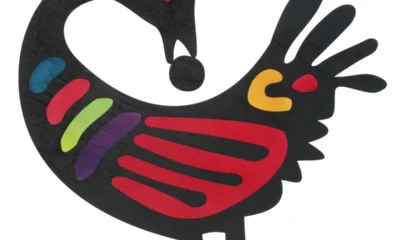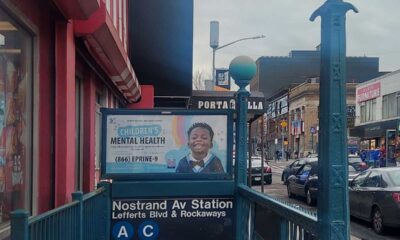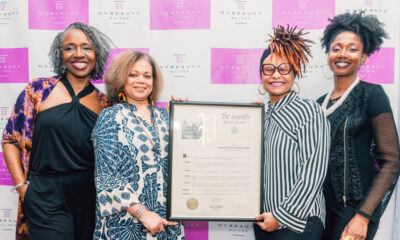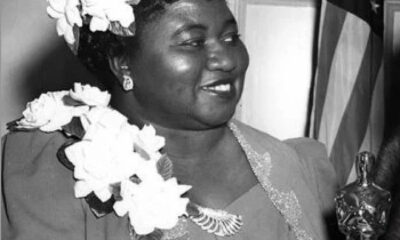Women's Matters
Celebrating and Protecting Our Young Women
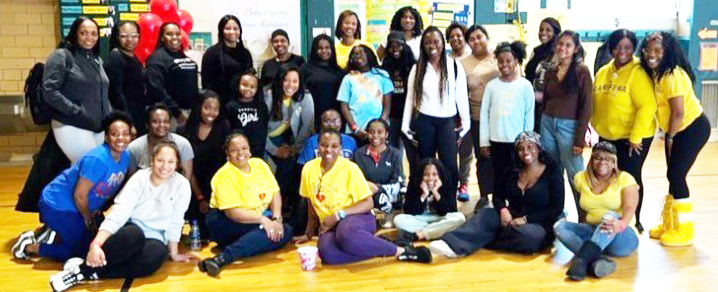
By Nayaba Arinde
Our Time Press
Possibly no better words can kick off March Women’s History Month than those penned by poet Maya Angelou’ in “Phenomenal Woman.” She wrote, “I’m a woman, phenomenally. Phenomenal woman, that’s me.”
The long-circulated narrative of the “strong Black woman,” although generally true, runs parallel with the reality that Black women are, and have been under attack on these shores since day one. Seen and treated as “lesser than”; scorned and abused by enslavers with — as Dr. Joy DeGruy taught –Post Traumatic Slave Syndrome passed down through Jim Crow, Reconstruction, the Civil Rights era to this very day. It shows up as a stark, mainstream-ingrained “concentrated disadvantage” against Black people, in general, but certainly women, in particular, feeling the brunt of having to rise up from under the bias.
Mothers making a dollar out of 15 cents to make a meal for the children, single-parenting households in a harsh society, holding down households, marriages, relationships, and families through social, political, and economic tidal waves. All this while becoming professionals, going to school, raising children, and becoming activists fighting big economic, social, and political issues. Warrior women, nonetheless.

So, what does this mean for young girls and women striving to make their mark in 2024? Young girls and women growing up in a society dealing with all sorts of educational, economic and political, and social justice tribulations; there are the mental health issues, post-pandemic trauma, health issues like diabetes, asthma, and substance abuse?
“I believe that young women today – especially young women of color – face unique challenges, and have had enormous obstacles put in front of them over the last few years,” national youth and community advocate Tamika Mallory told Our Time Press. “They must endure an unyielding attack on the right to control their bodies, unprecedented poverty, and a concerted effort to block their paths to opportunities that we haven’t seen since Jim Crow.
“So while I know that we are exhausted, and that we — myself included — are struggling with voter apathy,” Mallory, co-founder of Until Freedom continued, “now is precisely the time to push forward. We have to vote like our lives depend on it – because they do.”
Speaking of a solution rooted in the political arena, current budget ‘asks’ by State Assemblywoman Stefani Zineman include, “Funding in this budget for the Task Force on Missing BIPOC Women and Girls – the bill was signed into the law,” she told Our Time Press. The Bed-Stuy elected added that other issues she was focusing on includes, “Eradicating Black Maternal Morbidity and demanding funding for Independent Birthing Centers; increasing wages and providing Support Services for Caregivers; Ending Hair, Weight, and Age Discrimination against women of color.”
Young Black women have much to reflect upon this Women’s History Month and beyond. “I guess these young women have to figure out how to successfully transition from being a teenager to a young adult, and have to figure out how to take care of themselves in this economy,” Queens resident Kassandra Williams, 25, told Our Time Press. “Within the past two decades, we have experienced a pandemic and a recession–I think, and now we are experiencing inflation. It is a lot for a young person to work through.”
On March 9th, Sigma Gamma Rho Sorority, Inc., is holding their Annual Youth Symposium in Brooklyn. The Eta Nu Sigma Chapter hosts concurrently their Women’s Empowerment event, which is a series of workshops that focus on “women’s physical and mental health, and various additional topics that support continued success and an increase in the quality of life for women and their families.”
“The solutions to the biggest problems are that we need less ego, more execution and more partnerships across agencies,” Raven Robinson, CEO/founder Pr2Politics told Our Time Press.
SISTERS BUILDING SISTERS
Rosalyn McIntosh is a Childhood Trauma/Domestic Violence Coach who founded Broken To Blooming, and Sisters Building Sisters in Brooklyn, INC.
College student Tamia Jones, 18, is one of her mentees, she told Our Time Press, that navigating life and adulting is not easy.
“It is complicated financially, because we usually work part-time, and there’s never enough money to hold us because if you work certain jobs, they don’t pay you much, especially if you’re in retail. These types of jobs cut hours, so you don’t work so much, and if you don’t work, you don’t make a good amount of money. Mentally it’s stressful because we have to think about many things at once. We have to think about when assignments are due. Certain people like me also have procrastination problems, so it’s really hard for us to do things on time, so we have to work on ourselves.”
The New York City Technical College student added. “I feel like women in my age range in college deal with lots of seasonal depression also.”
Attending an in-person business strategy workshop this week, Ms. McIntosh told Our Time Press, “Some of the things stopping them from achieving their goals now: are depression, lack of self-love, childhood trauma, fear, and more. This was a business strategy workshop. I was taken aback. But, I help women work through their issues by showing them how to do the necessary work to help them embrace their traumas, because ‘Life Be LIFEing.’ I say this: get counseling from a licensed therapist; get a life coach; connect with friends and family.”
PROTECTING OUR YOUNG WOMEN IS KEY.
Then there is the glaring disparity in the media on reporting Black and missing people in the US. Currently, according to Derrica Wilson and Natalie Wilson’s Black and Missing Foundation (BAMFI) there are 153,374 African American, Asian, and Indian missing youths under the age of 18. The mainstream media seem reluctant to report on the issue. BAMFI says that it is because, “A lot of [Black and brown] children are initially classified as runaways, and as a result do not receive the Amber Alert.”
While 40% of missing people nationally are people with color, African Americans only make up 13% of the population.
Another startling statistic is Lancet Medical Journal stated that “Black women are murdered 6 times more often, on average, than their white peers.”
Their 2023 report also concludes that “Black women are murdered at younger ages and higher rates than other women of color.”
Their analysis determines that, “In the USA, Black women aged 25–44 years are disproportionately murdered compared with their white counterparts. Despite ongoing efforts to reduce racial and structural inequities, the result of these efforts remains unclear, particularly in light of the COVID-19 pandemic.”
The report continues, “Black women residing in the Midwest and Northeast were more likely to be killed with a firearm than Black women residing in any other area of the country.
This finding is a crucial initial step towards developing targeted solutions to reduce inequitable homicide rates among Black women.”
The racial inequities evidenced in the rates of homicide are a long-standing public health priority in the US, the report determines that some solutions lie in acknowledging causes like intimate partner violence; firearm legislation; and gun prevalence. Meanwhile, addressing “structural inequities, namely education, unemployment, economic status and wealth distribution, and home ownership; and pregnancy,” can lead to redressing the existing disparities.
The Eta Nu Sigma Chapter (Brooklyn, NY) of Sigma Gamma Rho Sorority, Inc., in partnership with Seven Roses Legacy Foundation (SRLF), told Our Time Press that they will be hosting their Annual Youth Symposium. It is held simultaneously on the second Saturday of March by Alumnae Chapters across the nation. The Youth Symposium is supported by undergraduate chapters and affiliates, and is “designed to highlight some of the prevalent concerns that negatively impact our youth today, such as education, career readiness, substance misuse, mental health awareness, low self-esteem, and suicide.”
There is so much hope and possibility.
Today’s young girls and women have absorbed many of the lessons of the past. They want to be educated on many levels, become independent business owners, political and community leaders, and effective influencers, advocates and activists.
Icons can be generational. Boomers, Gen Xers, Millennials and Gen Zers probably have different reference points for whom they see as high-achievers and urban legends too. But, certainly among the inspirational and transformational historic and current women are:
Africa’s Queen Idia to Yaa Asantewaa, to Winnie Mandela; to Africa-America’s Angela Davis, to Congresswoman Shirley Chisholm, Congresswoman Cori Bush, to Michelle Obama; and for the younger generations: from Issa Rae, to Rihanna, to Beyonce, to Coco Gauff, Yara Shahidi, Amanda Gorman, Marsai Martin, and Simone Biles.”
The Eta Nu Sigma Chapter (Brooklyn, NY) of Sigma Gamma Rho Sorority, Inc., event will be held on Saturday, March 9th, 2024 at P.S. / I.S. 109 – The Glenwood Academy, 1001 East 45th Street, in Brooklyn, 12-4pm.


